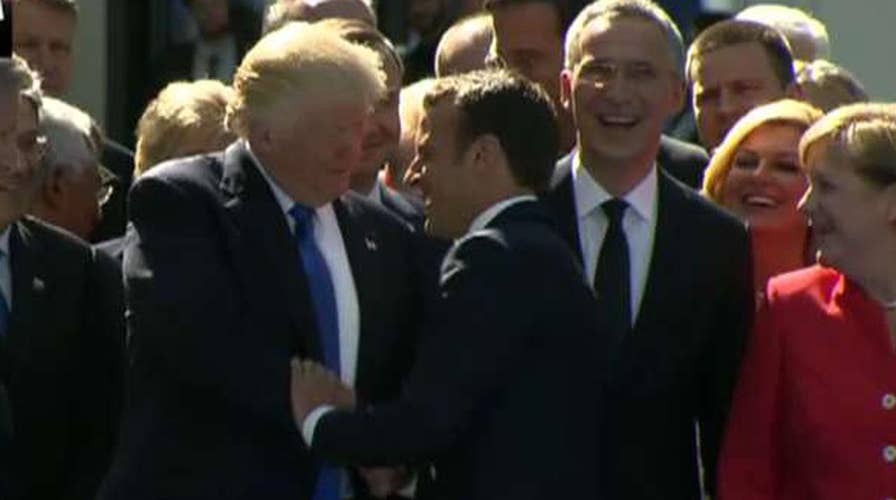After President Trump’s sumptuous, warm welcome in Saudi Arabia and Israel, dealing with America’s European allies has been a bucket of cold water. The French President snubbed him, nine thousand Belgians protested his arrival, NATO heads of state stood in stony disapproving silence as he spoke, and Germany’s chancellor invited former President Obama to counter-program President Trump’s message in Berlin.
President Trump wasn’t pulling his punches, either, declining to use the words of the Article 5 mutual defense incantation exactly as Europeans wanted. He chose the public commemoration of a 9/11 memorial to savagely criticize allies’ defense spending, saying they owed the U.S. “massive amounts of money.” Disappointed reactions sent his national security team scrambling to reassure nervous allies America was not backing away from our commitments.
Europeans now view the U.S. as a real threat to the rules-based international order we built.
It was, therefore, an understatement for EU President Donald Tusk to caution “this will be the most challenging G-7 summit in years.” Security issues are relatively easy to work on with Europeans compared to trade, climate change, and sanctions on Russia. Germany’s chancellor rejected as “inappropriate” his criticism of Germany’s trade surplus. Even the Pope seemed to be trolling President Trump, giving him a copy of the papal encyclical on climate change.
President Trump sounded upbeat, though, tweeting “We made and saved the USA many billions of dollars and millions of jobs.” But Europeans now view the U.S. as a real threat to the rules-based international order we built. President Trump has been needlessly provocative — which will make much more difficult the changes to trading agreements, climate accords, and burden sharing within NATO he is trying to achieve. A more gracious appeal would have gotten more mileage.
President Trump might, perhaps, have condoled with Europeans about recent terror attacks in Manchester, Paris, and Brussels, and justified on that basis his calls for NATO to put countering terrorism more central in its work. In making the case for higher European defense spending, he might have taken up Secretary of Defense Mattis’ nice line about Europe not expecting us to love and protect their children more than Europeans themselves will. He might have praised all the NATO states that have increased their defense spending recently. And he might have included the taxpayers of Britain, Greece, and Estonia, who also meet the NATO spending standard, when sounding aggrieved at Europeans taking advantage of us.
It’s actually not that hard to give our European allies tough messages nicely. Every other American president has managed to do so.

